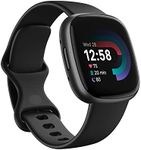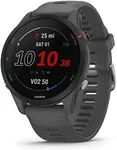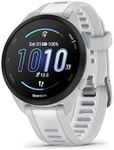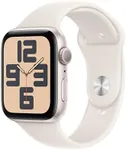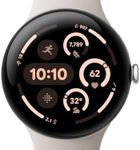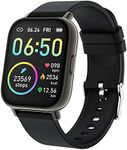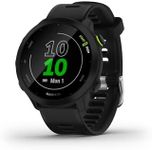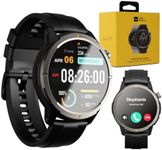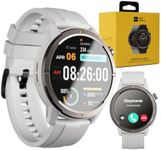Buying Guide for the Best Running Watches
Choosing the right running watch can significantly enhance your running experience by providing valuable insights into your performance and helping you achieve your fitness goals. When selecting a running watch, consider what features are most important to you based on your running habits and personal preferences. Whether you're a casual runner or a seasoned marathoner, understanding the key specifications will help you make an informed decision.GPS AccuracyGPS accuracy is crucial for tracking your running routes and measuring distance accurately. A watch with high GPS accuracy will provide precise data on your pace, distance, and location. GPS accuracy can vary, with some watches offering multi-band GPS or additional satellite systems for better precision. If you run in urban areas with tall buildings or dense forests, a watch with enhanced GPS capabilities will be beneficial. For most runners, a standard GPS will suffice, but if you are training for races or need detailed route information, consider a watch with advanced GPS features.
Heart Rate MonitoringHeart rate monitoring helps you track your cardiovascular performance and adjust your training intensity. Watches with built-in optical heart rate sensors provide continuous heart rate data, which is useful for monitoring your effort levels and recovery. Some watches offer advanced heart rate metrics, such as heart rate variability and VO2 max estimation. If you are focused on heart rate-based training, choose a watch with reliable and accurate heart rate monitoring. For casual runners, basic heart rate tracking may be sufficient.
Battery LifeBattery life determines how long your watch can operate before needing a recharge, which is especially important for long-distance runners or those who use GPS frequently. Running watches offer varying battery life, from a few hours with GPS on to several weeks in basic watch mode. If you participate in ultra-marathons or long trail runs, opt for a watch with extended battery life. For regular daily runs, a watch with moderate battery life should meet your needs.
Water ResistanceWater resistance is important if you run in the rain or sweat heavily, and it also allows you to use the watch for swimming. Running watches come with different water resistance ratings, typically measured in meters. A watch with a rating of 50 meters or more is generally suitable for swimming and running in wet conditions. If you plan to use your watch for triathlons or water sports, ensure it has a higher water resistance rating. For most runners, a basic water-resistant watch will be adequate.
Smart FeaturesSmart features include notifications, music storage, and contactless payments, which can enhance your running experience by allowing you to stay connected and entertained without carrying your phone. Some watches offer advanced smart features like voice assistants and app integrations. If you prefer a minimalist approach, you might opt for a watch with fewer smart features. However, if you enjoy listening to music or need to stay connected during your runs, consider a watch with robust smart capabilities.
Durability and Build QualityDurability and build quality ensure that your watch can withstand the rigors of running, including exposure to sweat, dirt, and occasional impacts. Running watches are made from various materials, such as plastic, stainless steel, or titanium, each offering different levels of durability. If you run in challenging environments or participate in trail running, a watch with a rugged build is advisable. For everyday running, a standard durable watch should suffice.
